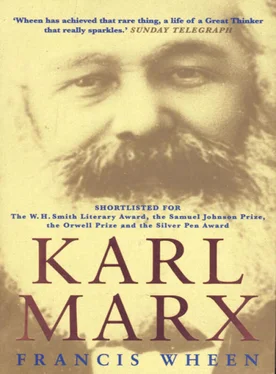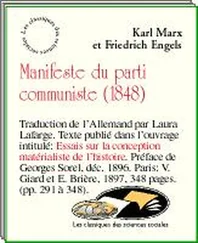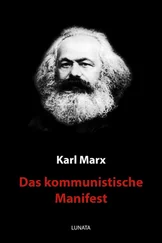Most eloquent. Elsewhere in the essay, however, his verbal facility occasionally degenerates into mere word-juggling for its own sake – or, to be blunt, showing off. Here he is on Martin Luther and the German Reformation:
He destroyed faith in authority, but only by restoring the authority of faith. He transformed the priests into laymen, but only by transforming the laymen into priests. He freed mankind from external religiosity, but only by making religiosity the inner man. He freed the body from the chains, but only by putting the heart in chains.
Or on the difference between France and Germany:
In France it is enough to be something for one to want to be everything. In Germany no one may be anything unless he renounces everything. In France partial emancipation is the basis of universal emancipation. In Germany universal emancipation is the conditio sine qua non of any partial emancipation.
After a few paragraphs of this pyrotechnic flamboyance, one suspects that the display itself has become an end rather than a means.
To wish away Marx’s stylistic excess is, however, to miss the point. His vices were also his virtues, manifestations of a mind addicted to paradox and inversion, antithesis and chiasmus. Sometimes this dialectical zeal produced empty rhetoric, but more often it led to startling and original insights. He took nothing for granted, turned everything upside down – including society itself. How could the mighty be put down from their seat, and the humble exalted? In the critique of Hegel he set out his answer for the first time: what was required was ‘a class with radical chains, a class of civil society which is not a class of civil society, a class which is the dissolution of all classes … This dissolution of society as a particular class is the proletariat .’ That last word resounds like a clap of thunder over a parched landscape. Never mind that neither Germany nor France yet had a proletariat worth the name: a storm was coming.
Marx’s theory of class struggle was to be refined and embellished over the next few years – most memorably in the Communist Manifesto – but its outline was already clear enough: ‘Every class, as soon as it takes up the struggle against the class above it, is involved in a struggle with the class beneath it. Thus princes struggle against kings, bureaucrats against aristocrats, and the bourgeoisie against all of these, while the proletariat is already beginning to struggle against the bourgeoisie.’ The role of emancipator therefore passes from one class to the next until universal liberation is finally achieved. In France, the bourgeoisie had already toppled the nobility and the clergy, and another upheaval seemed imminent. Even in stolid old Prussia, medieval government could not prolong its reign indefinitely. With a parting jibe at Teutonic efficiency – ‘Germany, which is renowned for its thoroughness, cannot make a revolution unless it is a thorough one’ – he set off for Paris. It was, he sensed, the only place to be at this moment in history. ‘When all the inner conditions are met, the day of the German resurrection will be heralded by the crowing of the Gallic cock.’
‘And so – to Paris, to the old university of philosophy and the new capital of the new world!’ Marx wrote to Ruge in September 1843. ‘Whether the enterprise comes into being or not, in any case I shall be in Paris by the end of this month, since the atmosphere here makes one a serf, and in Germany I see no scope at all for free activity.’ The revolutions of 1789 and 1830 had made the French capital a natural rallying point. It was a city of plotters and poets and pamphleteers, sects and salons and secret societies – ‘the nerve-centre of European history, sending out electric shocks at intervals which galvanised the whole world’. All the best-known political thinkers of the age were Frenchmen: the mystical Christian socialist Pierre Leroux, the utopian communists Victor Considérant and Etienne Cabet, the liberal orator and poet Alphonse de Lamartine (or, to give him his full glorious appellation, Alphonse Marie Louis de Prat de Lamartine). Above all there was Pierre Joseph Proudhon, libertarian anarchist, who had won instant fame in 1840 with his book What Is Property ? – a question he answered on page one with the simple formulation ‘property is theft’. All these political picadors would eventually be tossed and gored by Karl Marx – most notably Proudhon, whose magnum opus on ‘the philosophy of poverty’ provoked Marx’s lacerating riposte, The Poverty of Philosophy . For the moment, however, the newcomer would be content to listen and learn.
There was music in the cafés at night, revolution in the air. With the ‘bourgeois monarchy’ of Louis Philippe tottering, another high-voltage excitement seemed inevitable and imminent. ‘ The bourgeois King’s loss of prestige among the peopleis demonstrated by the many attempts to assassinate that dynastic and autocratic prince,’ Ruge reported. ‘One day when he dashed by me in the Champs-Elysées, well hidden in his coach, with hussars in front and behind and on both sides, I observed to my astonishment that the outriders had their guns cocked ready to fire in earnest and not just in the usual burlesque style. Thus did he ride by with his bad conscience!’ Ruge, Marx and the poet Georg Herwegh – the presiding triumvirate of the Deutsche-Französische Jahrbücher – arrived in Paris in the autumn of 1843. Ruge travelled from Dresden in a ‘large omnibus’ accompanied by his wife, a swarm of children and a large leg of veal. Inspired by the utopian Charles Fourier, he proposed that the three couples should form a ‘phalanstery’ or commune, in which the women would take it in turns to shop, cook and sew. ‘ Frau Herwegh summed up the situation at first glance,’ her son Marcel recorded many years later. ‘How could Frau Ruge, the nice, small Saxon woman, get on with the very intelligent and even more ambitious Frau Marx, whose knowledge was far superior to hers? How could Frau Herwegh, who had only been married so short a time and was the youngest of them, find herself attracted by this communal life?’ Georg and Emma Herwegh had a taste for luxury – and, since her father was a rich banker, the means to indulge it. They declined Ruge’s invitation. But Karl and Jenny (who was now four months pregnant) decided to give it a try. They moved into Ruge’s apartment at 23 Rue Vanneau, next door to the offices of the Jahrbücher .
The experiment in patriarchal communism lasted for about a fortnight before the Marxes decamped and found lodgings of their own further down the street. Ruge was a prim, puritanical homebody who couldn’t tolerate his co-editor’s disorganised and impulsive habits: Marx, he complained, ‘ finishes nothing, breaks off everythingand plunges ever afresh into an endless sea of books … He has worked himself sick and not gone to bed for three, even four, nights on end …’ Shocked by these ‘crazy methods of working’, Ruge was downright scandalised by Marx’s leisures and pleasures. ‘ His wife gave him for his birthday a riding switchcosting 100 francs,’ he wrote a few months later, ‘and the poor devil cannot ride nor has he a horse. Everything he sees he wants to “have” – a carriage, smart clothes, a flower garden, new furniture from the Exhibition, in fact the moon.’ It’s an implausible shopping list: Marx was uninterested in luxuries or fripperies. If he did desire such things it was undoubtedly on behalf of Jenny, who delighted in them. These early months in Paris were the first and only time in her married life when she could afford to indulge the appetite, since Karl’s salary was augmented by a donation of 1,000 thalers sent from Cologne by former shareholders in the Rheinische Zeitung . Besides, he wanted her to enjoy a last spree before being cribbed and confined by the demands of maternity. On May Day 1844 she gave birth to a baby girl, Jenny – more often known by the diminutive ‘Jennychen’ – whose dark eyes and black crest of hair gave her the appearance of a miniature Karl.
Читать дальше












